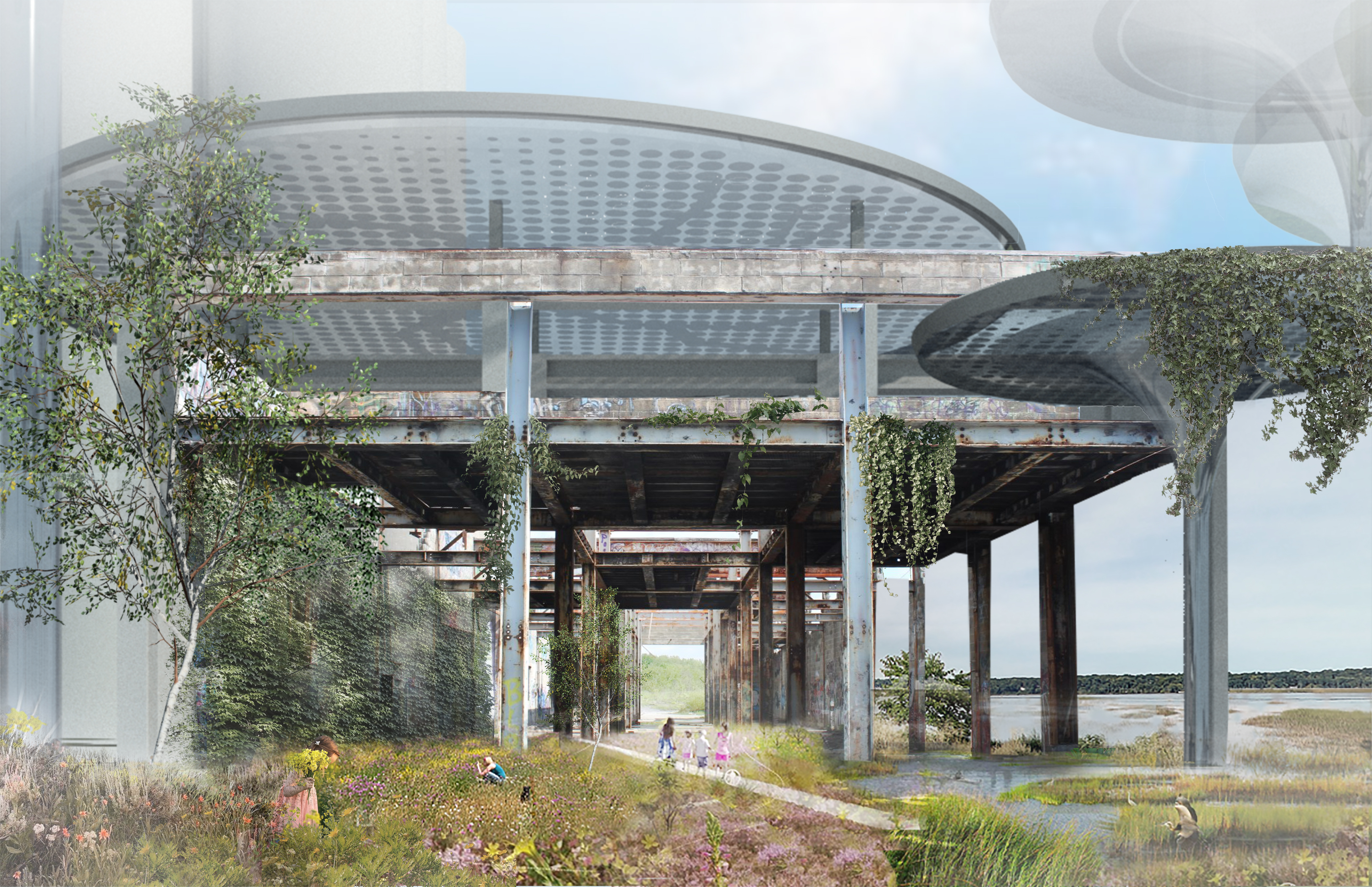Social Carbon
Hudson Valley, Suburban, and the Green New Deal
GSAPP Fall 2019
Urban Design Studio
Date | 2019.10-12
Instructor | Kaja Kühl (Coordinator), Anna Dietzsch, Jerome Haferd, Liz McEnaney, Justin Moore, Shachi Pandey, Raafi Rivero, David Smiley, Dragana Zoric
Team | You-Chiao Wu, Mary Allen, Minjung Lee, Candelaria Mas
Site | Hudson Valley+ Kingston, NY
As it stands, the Green New Deal is lacking the practical tools to implement
the grand goals the document puts forth. There are plenty of innovativesolutions to the climate crisis, but the largest flaw in the system is
understanding how these solutions hit the ground, and how toprevent the inequalities that the original New Deal inflected on manycommunities.
In order to visualize the complexities of the current system —where social
needs and carbon emissions coexist—, we analyze the Hudson Valley on
a transect that repeats along the region. We apply design thinking through
a coordinated approach of varied projects that prioritize both people’s
and environmental needs, as a tool to rethinking the Green New Deal
as a middle ground —top down / grass-roots— initiative that motivates
partnerships across disciplines and existing boundaries.

For this case study we decided to zoom in on Kingston NY. This unique balance of wetlands, urban areas, suburbs, farm land and forests has theamazing carbon balancing capacity, but only if it works together as a whole.
We hold a workshop in Kingston and while we were there we talked to
many people as we could, and there seemed to be a common theme, such astransportation and housing issues.
We propose that there needs to be a new strategy of funding infrastructure projects that generate a hybrid top-downand bottom-up approach. It solves social needs by adding carbon value to it, and the common goal and strategy tackle both issues.
We propose that there needs to be a new strategy of funding infrastructure projects that generate a hybrid top-downand bottom-up approach. It solves social needs by adding carbon value to it, and the common goal and strategy tackle both issues.
We start by proposing a Carbon Coordination Plan for Kingston NY that
offers opportunities to reduce carbon emissions across the entire area.

This proposal is broad and comprehensive and offers strategies that should
happen over time. And these projects happen at a variety of different scales,the Strategic scale, Community-scale, and Block scale interventions. Those
projects are carbon zero affordable housing, net-zero neighborhoods,recharge hub, and wetland generator. They are run by different sectors
including municipalities, community-based organizations, and individuals.
We’re calling this system Social Carbon.
including municipalities, community-based organizations, and individuals.
We’re calling this system Social Carbon.
Neighborhood Regeneration

Carbon Zero Affordable Housing

Wetland Generator


